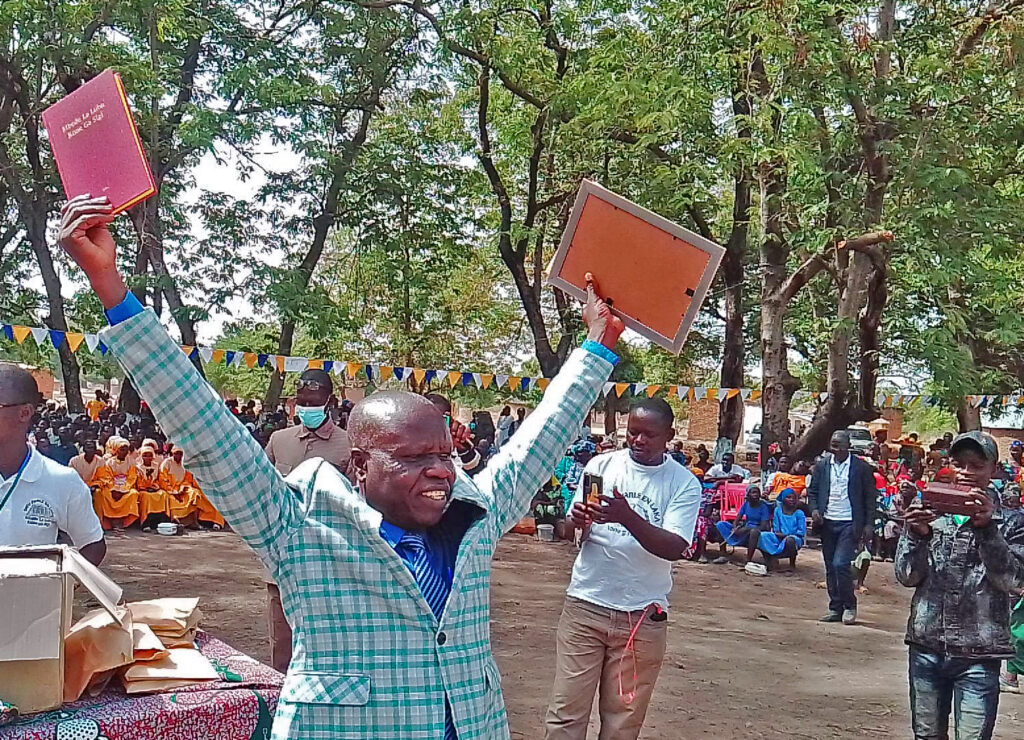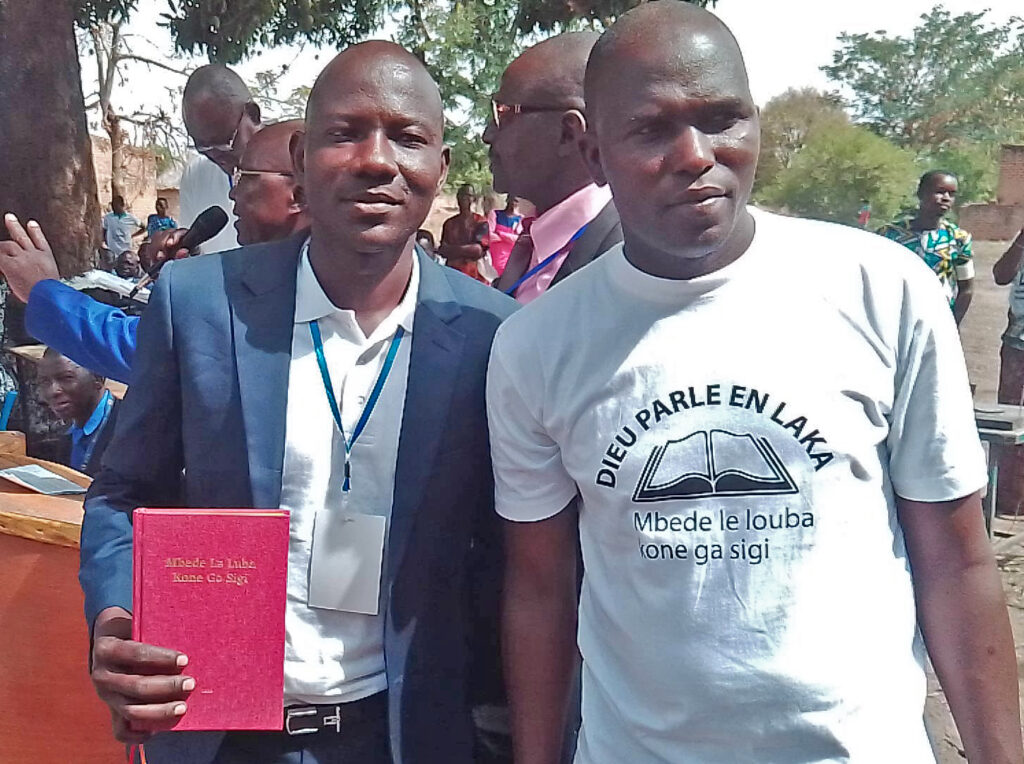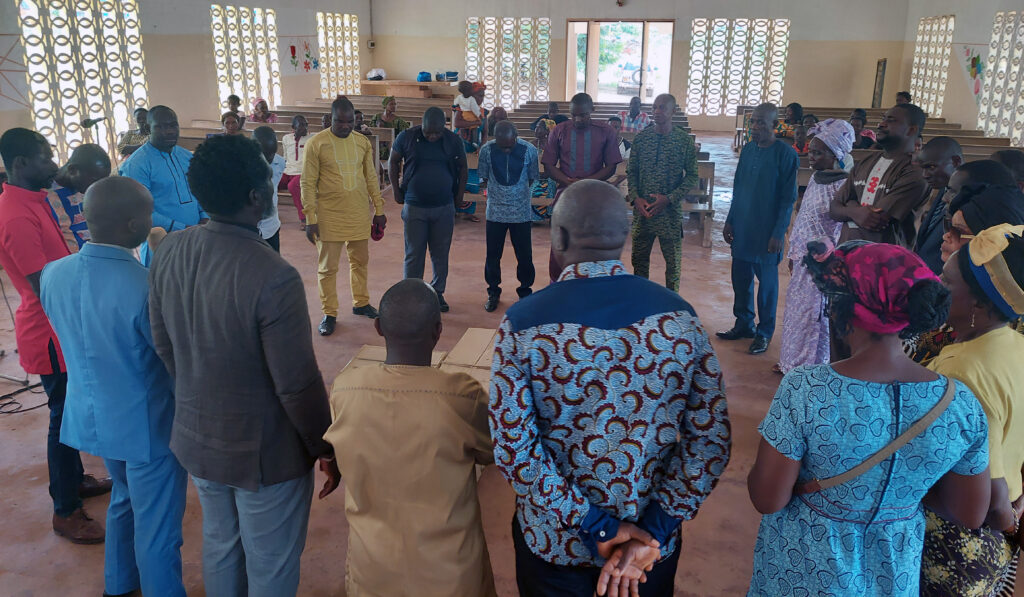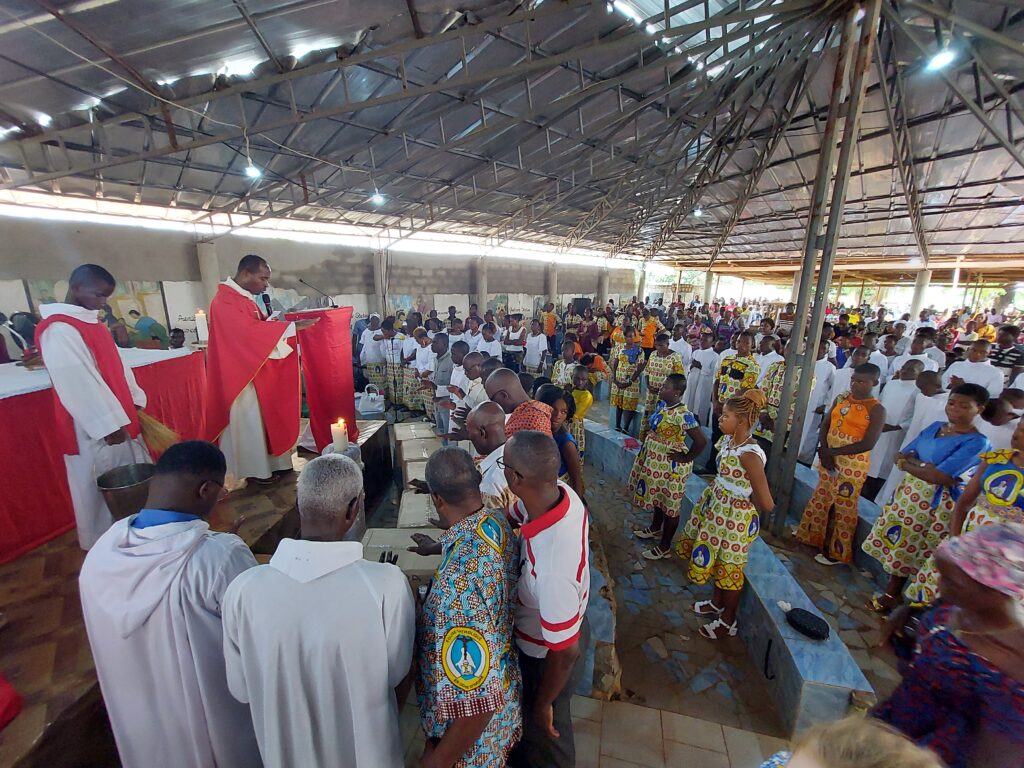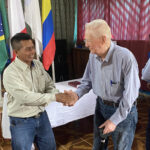Just Another Day
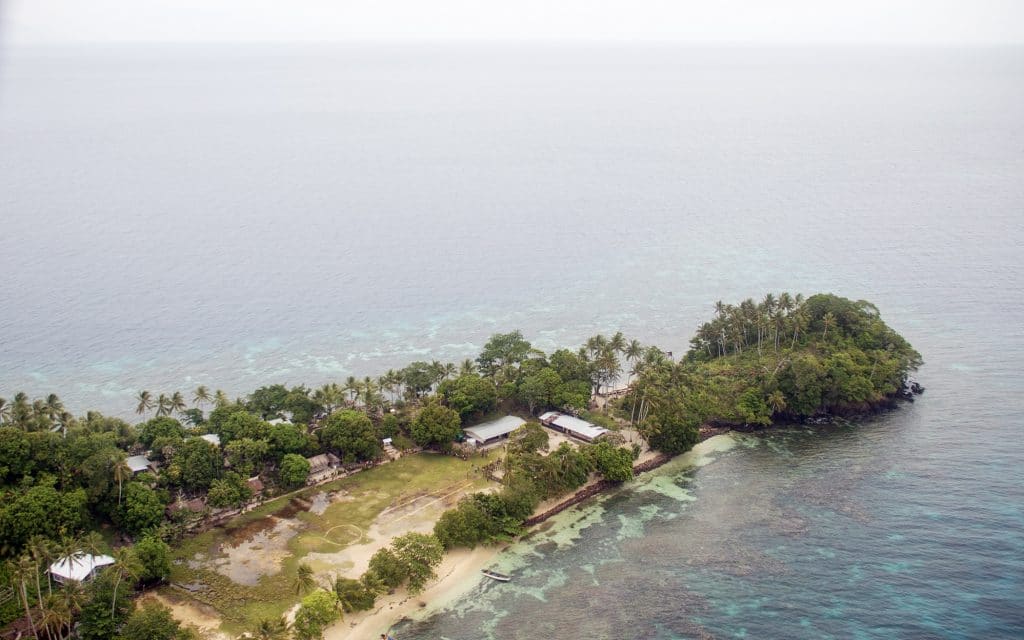
Landing a helicopter on a soccer field in remote Nubogeta village on tiny Gumawana Island in the midst of the vast glittering Pacific Ocean is just another day in the life of JAARS-trained pilot Gavin Jones.
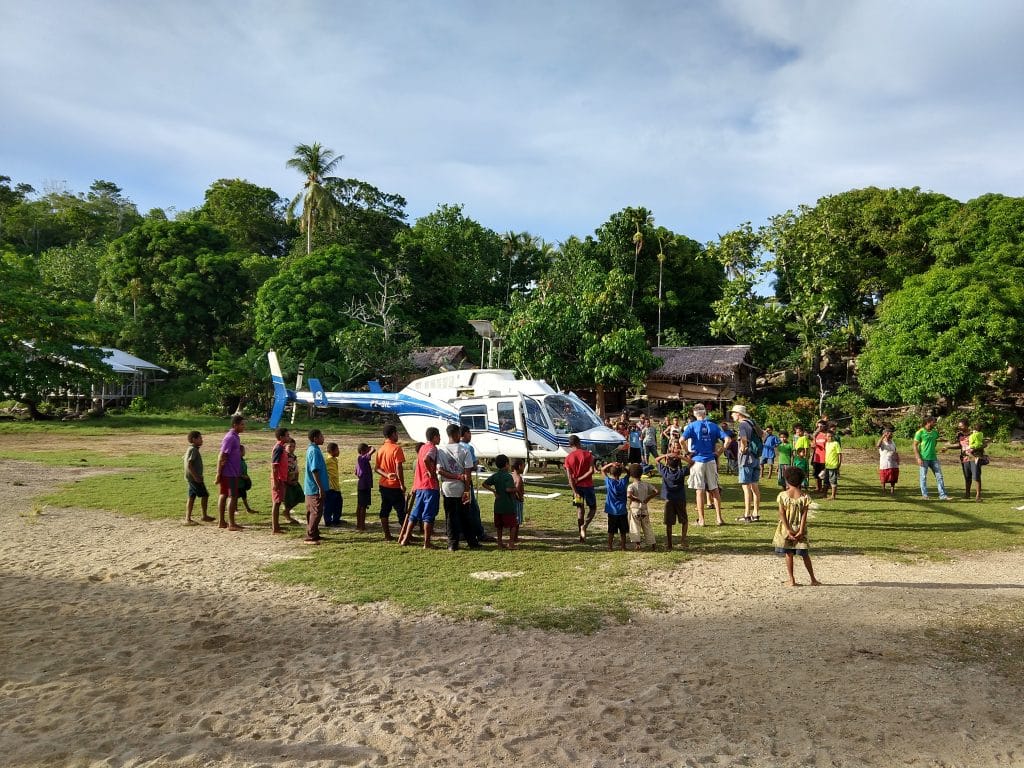
Back before pandemic lockdowns stifled movement in Papua New Guinea (PNG), Gavin Jones and Josh Eicholtz teamed up to deliver some New Testaments and guests to a Gumawana community who were planning a celebration to dedicate their long-awaited Scriptures.
The Gumawana language is spoken by over 400 people on the Amphlett Islands of the Milne Bay Province in PNG. A population of 400 may not seem very large to us, but God cares for every soul on these tiny islands. That’s the reason translators Clif and Roxanne Olson first began working in the village of Nubogeta on Gumawana Island in 1984. Thirty-six years later, they had completed the Gumawana New Testament and select portions—Genesis, Exodus, Ruth, and Jonah—of the Old Testament and were ready to share them with the people.
But how do you transport guests and boxes New Testaments to such a remote location? By airplane and helicopter, of course!
The nearest airstrip to Nubogeta village was at Vivigani—an old WWII airstrip without any facilities—on Goodenough Island.
Josh completed the first leg of the journey, flying guests and Scriptures to Vivigani in the Quest Kodiak airplane. Then, Gavin completed the journey via helicopter. It took Gavin three trips to get the entire group and cargo out to the dedication at Nubogeta village. “The helicopter was essential to save the many visitors a 12—24 hour boat ride on rough waters from the city of Alotau to the dedication,” Gavin said. “It was only a 13-minute flight [from Vivigani to Nubogeta] in the helicopter.”
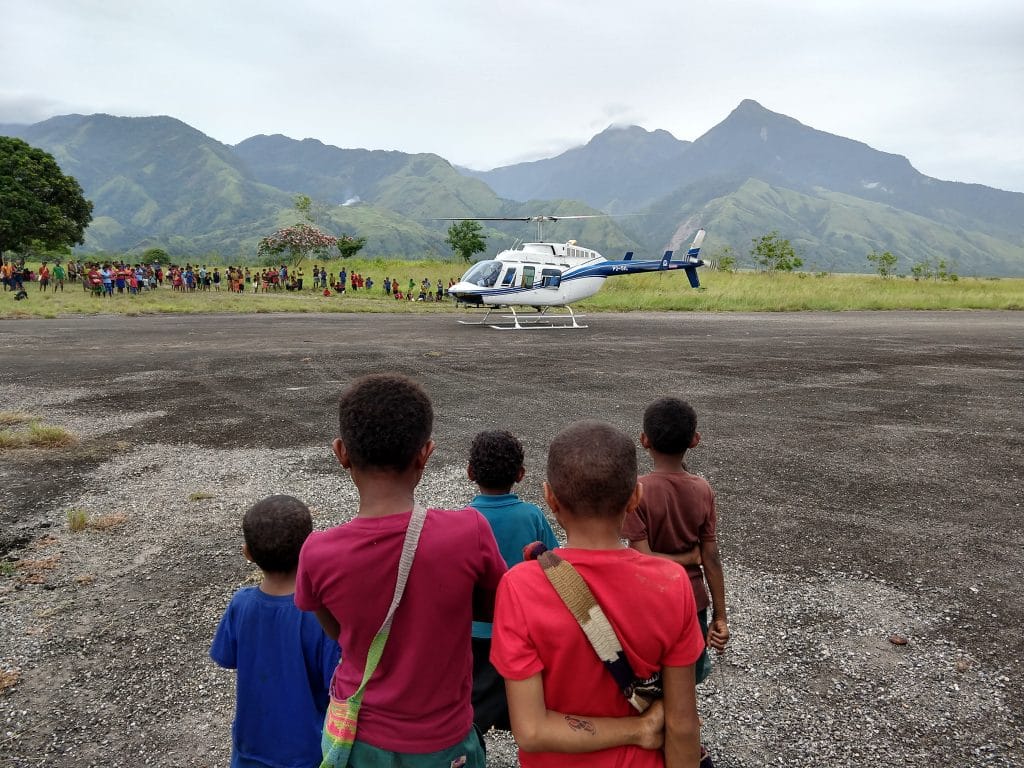
Landing the helicopter in Nubogeta, which had no official helicopter pad, was a demanding process. After careful planning, Gavin and the other pilots had decided to use the Nubogeta soccer field as the landing site. The field, which is about a mile long and about a quarter mile wide at its widest, is the only flat spot on the island. Plus, strong winds can make the landing and takeoff challenging. Josh summed up the skills of the PNG helicopter pilots when he said, “I’m impressed with our helicopter pilots and the work they do in this country!”
This flight wasn’t the only tricky one Gavin has faced in this country, though. He faces challenges every time he flies: “I’m always amazed at the ruggedness and remoteness of PNG and the massive challenge it presents to travel. The helicopter is such an amazing machine. It quickly and efficiently bypasses so many of the transportation challenges that PNG presents.”
This machine and Gavin’s training enabled him, the guests, and the Scriptures to safely arrive at Nubogeta village, where villagers celebrated with much singing and dancing.
Meisi, the daughter of a local translator, carried the New Testament in a clay pot on her head up to the podium. Villagers use these pots for cooking food, so this was symbolic of the spiritual food of God’s Word, which had come to the Gumawana people at last!
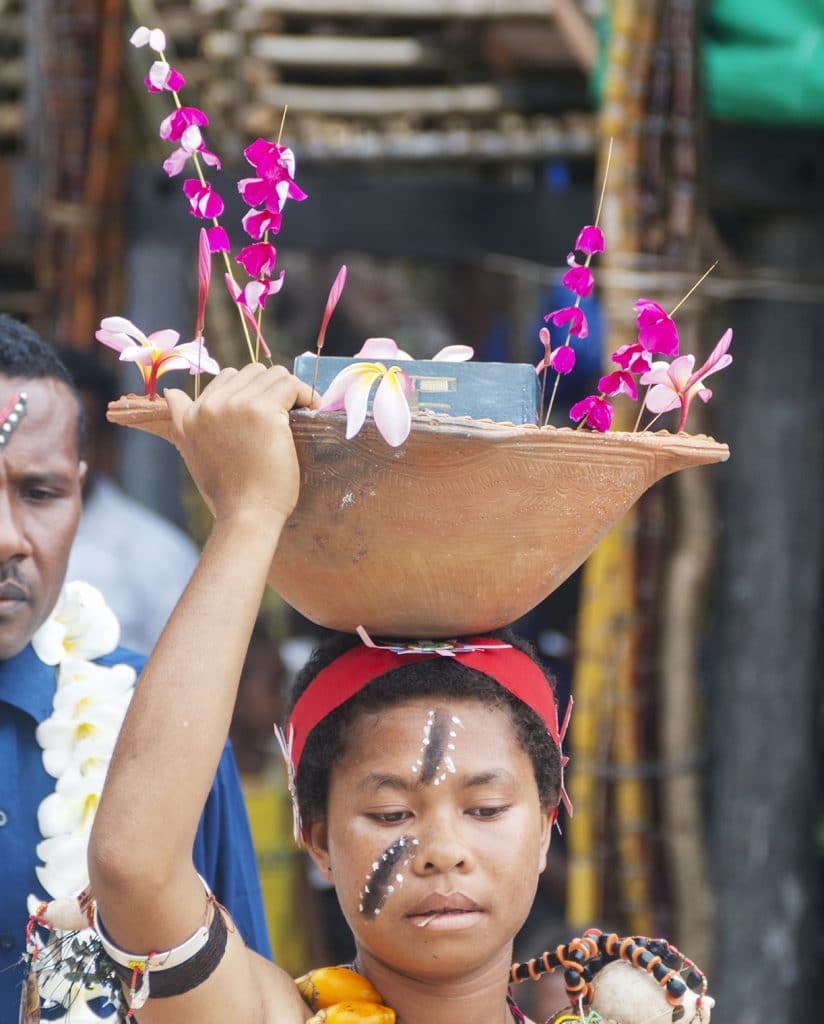
People like you who give to JAARS helped make it happen by enabling Gavin and Josh to gain the knowledge and skills needed to fly in such rugged locations. Since most of JAARS overseas partners, like PNG, have already transitioned to turbine-powered helicopters rather than piston-powered, JAARS is hoping to replace our piston-powered helicopter with a turbine-powered R66 to better equip these pilots when they come to JAARS for training.
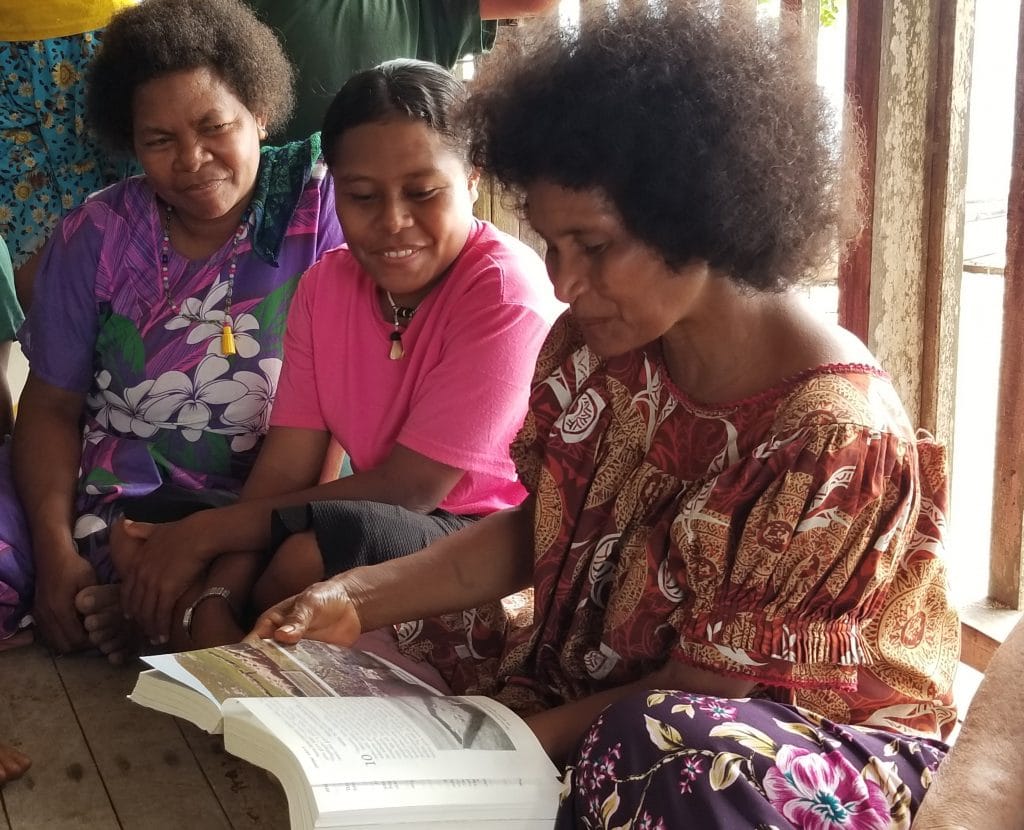
Gavin says, “A turbine [powered] helicopter will equip new pilots in training far better for the equipment they will be using on the field. The things they learn in such a machine at JAARS will be far more applicable to the world we fly in here and we won’t need to deal with negative habits learned in a piston helicopter that need to be unlearned in a turbine.”
To help pilots like Gavin and Josh receive the training they need to further Bible translation, please consider giving to Aviation Solutions. Thank you!



























































